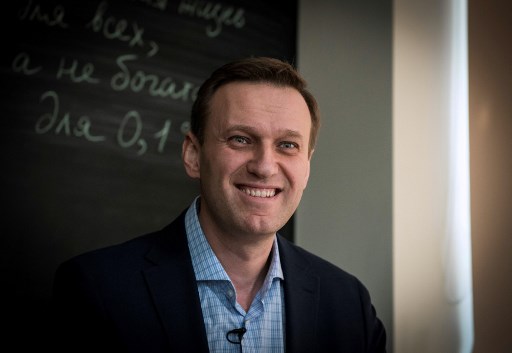Navalny out of a coma and responsive, German doctors say
BERLIN — Russian opposition leader Alexei Navalny is no longer in a medically induced coma and is responsive, doctors treating him at Charité hospital in Berlin said Monday (7). But they did not rule out lasting damage from what they called his “severe poisoning” with what the German government has said was a military-grade nerve agent.
Navalny was flown to Germany on Aug. 22 for treatment of a suspected poisoning. Specialists from the German army later determined the poison came from the Novichok family of substances developed by the Soviet Union and used at least once before on an opponent of the Kremlin.
Ties between Berlin and Moscow, already strained over Russia’s 2014 invasion of Crimea and suspected involvement in the slaying of a Chechen rebel commander in a Berlin park last year, have been further eroded by the poisoning of Navalny.
The German government has demanded an explanation from Russia, but the Kremlin does not seem inclined to offer one, saying it has not yet been shown proof that Navalny was poisoned.
Navalny has been brought out of the medically induced coma and is being weaned from a respirator, the hospital said in a statement.
“He is responsive to verbal stimuli,” the statement said. “It remains too early to gauge the potential long-term effects of his severe poisoning.”
Russia has a long history of using poison in assassination attempts, including Novichok agents. Sergei V. Skripal, a former Russian intelligence officer living in England, and his daughter, Yulia Skripal, were poisoned by a Novichok agent in March 2018, and British authorities accused operatives from Russia’s military intelligence service of carrying out attack. Both Skripals survived, but they are in hiding and little is known about their condition.
Navalny fell violently ill Aug. 20, as he made his way back to Moscow after meetings with opposition politicians in Siberia, before nationwide local elections to be held Sunday (13). Two days later, he was evacuated to Berlin, where he has been receiving treatment in one of the country’s leading research hospitals. Experts from the German army were asked to run tests that detected a substance from the Novichok group in Navalny’s system.
News of Navalny’s improved health came amid a debate in Berlin over how to respond to the poisoning. There have been calls for the German government to cancel the Russian-led Nord Stream 2 natural gas pipeline under the Baltic Sea, a project that is nearly complete.
German Chancellor Angela Merkel has not ruled out any measures at this point, her spokesman said Monday, as calls increased for construction of the final 90 miles of the $11 billion pipeline project to be halted in response to the poisoning. Merkel led the push for the European Union to impose economic sanctions on Russia in response to Crimea and has maintained support of the effort, despite some calls to ease them.
Merkel had defended completion of the pipeline as in Germany’s interest, even days after Navalny was flown by air ambulance to Berlin. But that was before the agent of his poisoning had been determined.
“It is up to Russia how Nord Stream 2 will continue,” said Jens Spahn, a senior member of Merkel’s conservative party who serves as minister for health. “There are no economic issues that can be more important than Germany’s and Europe’s foreign and security interests.”
-New York Times


